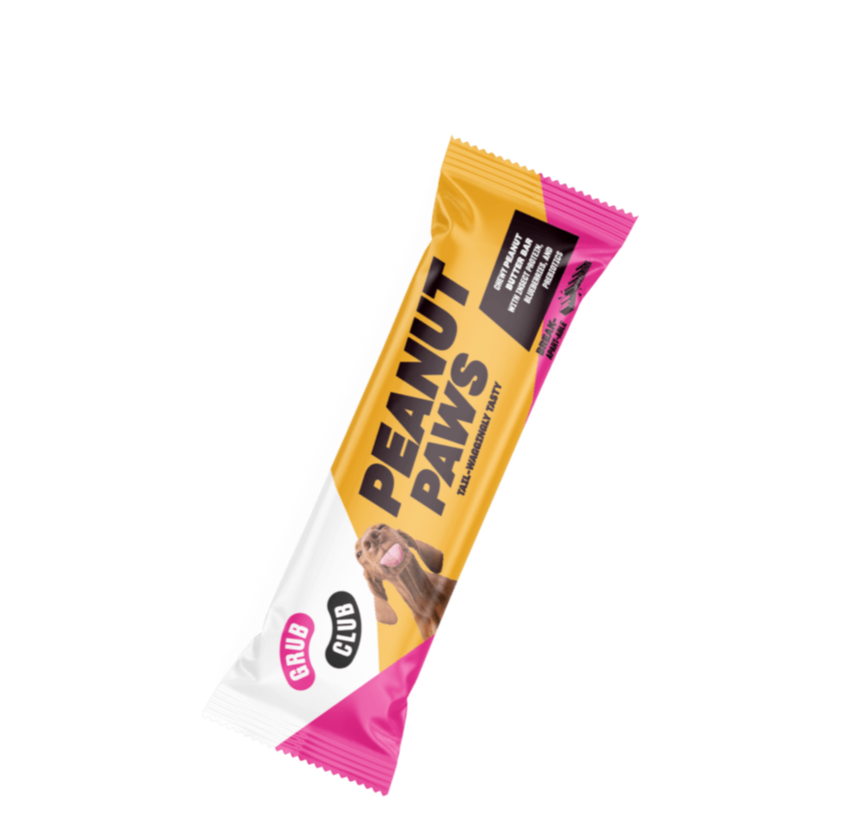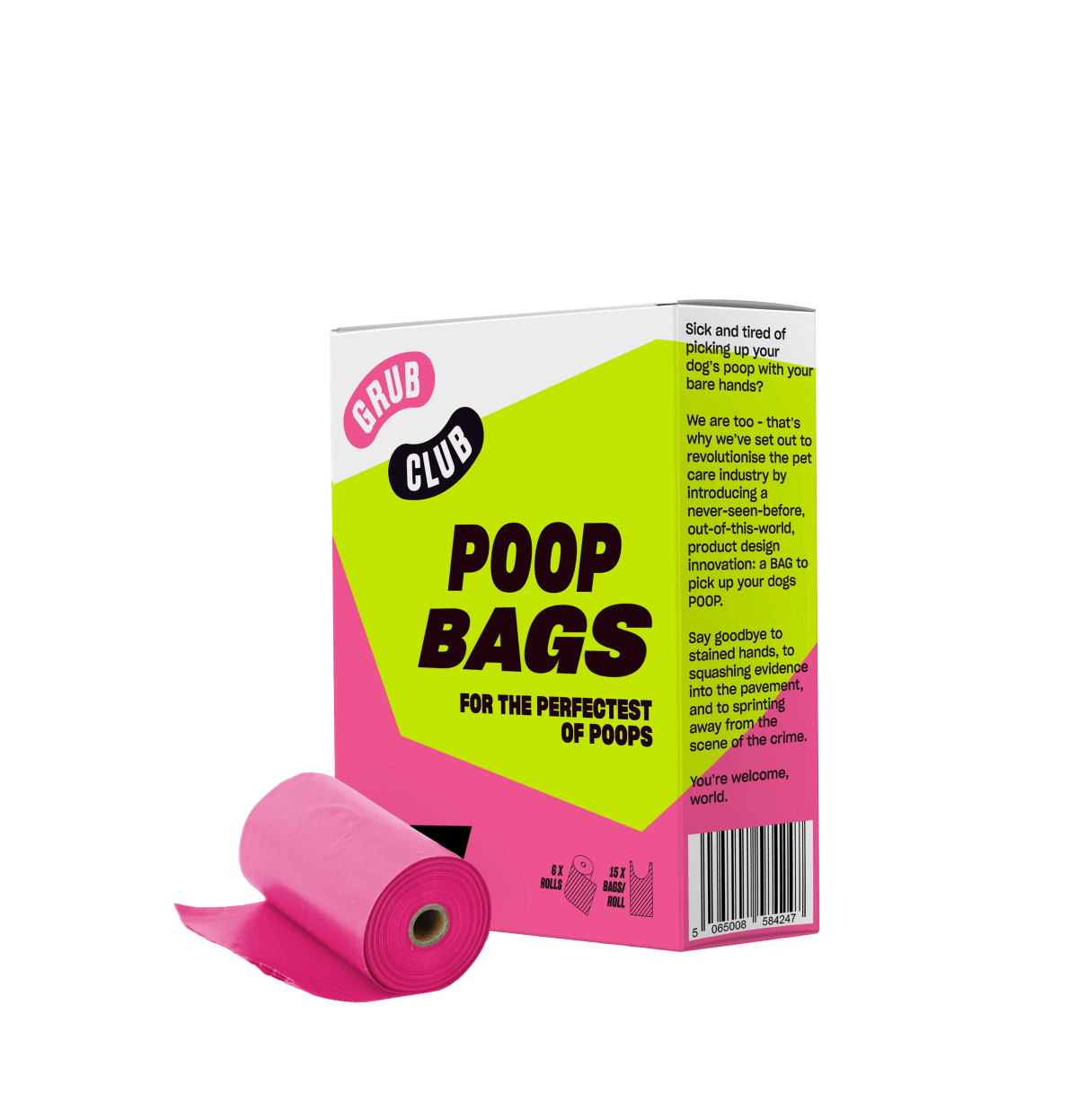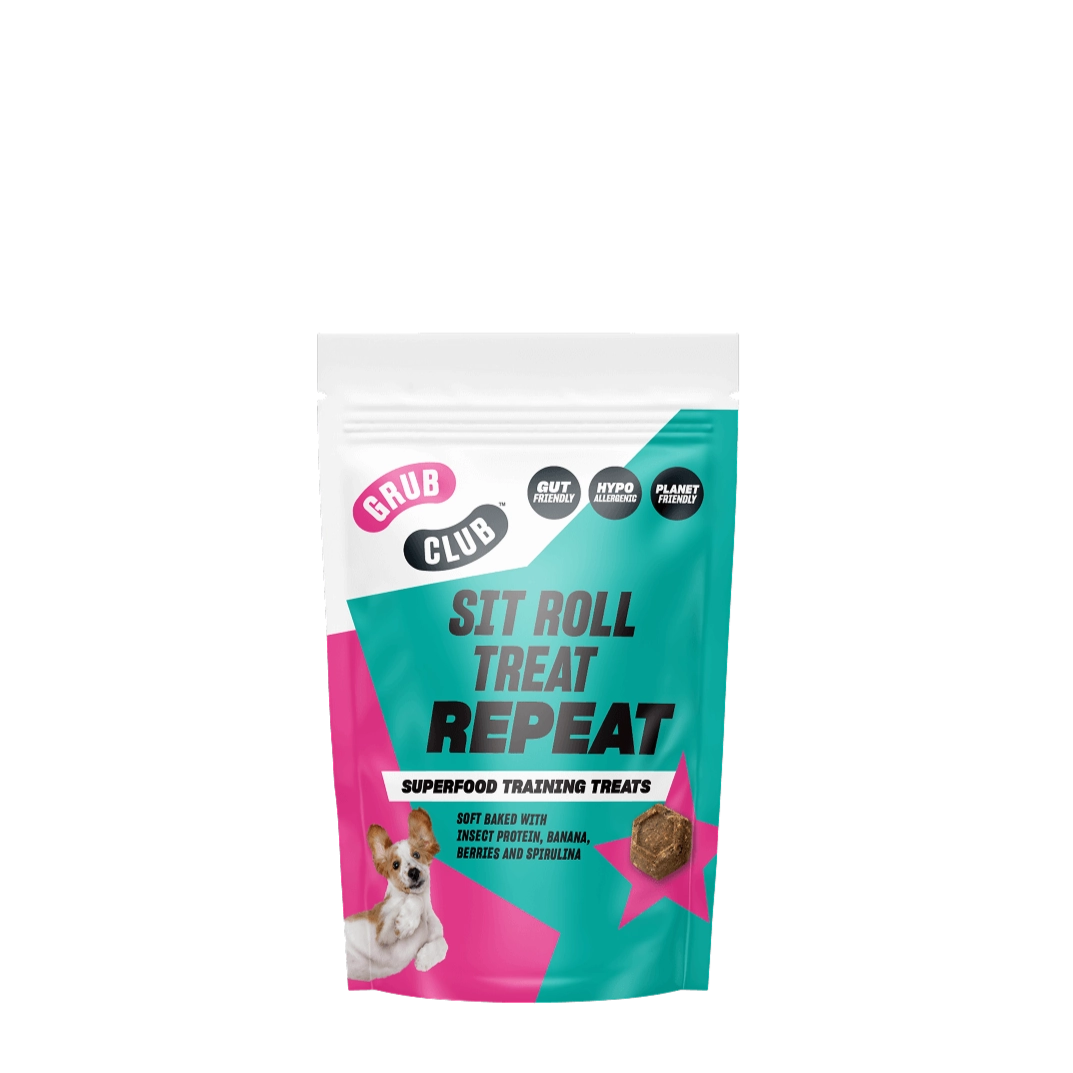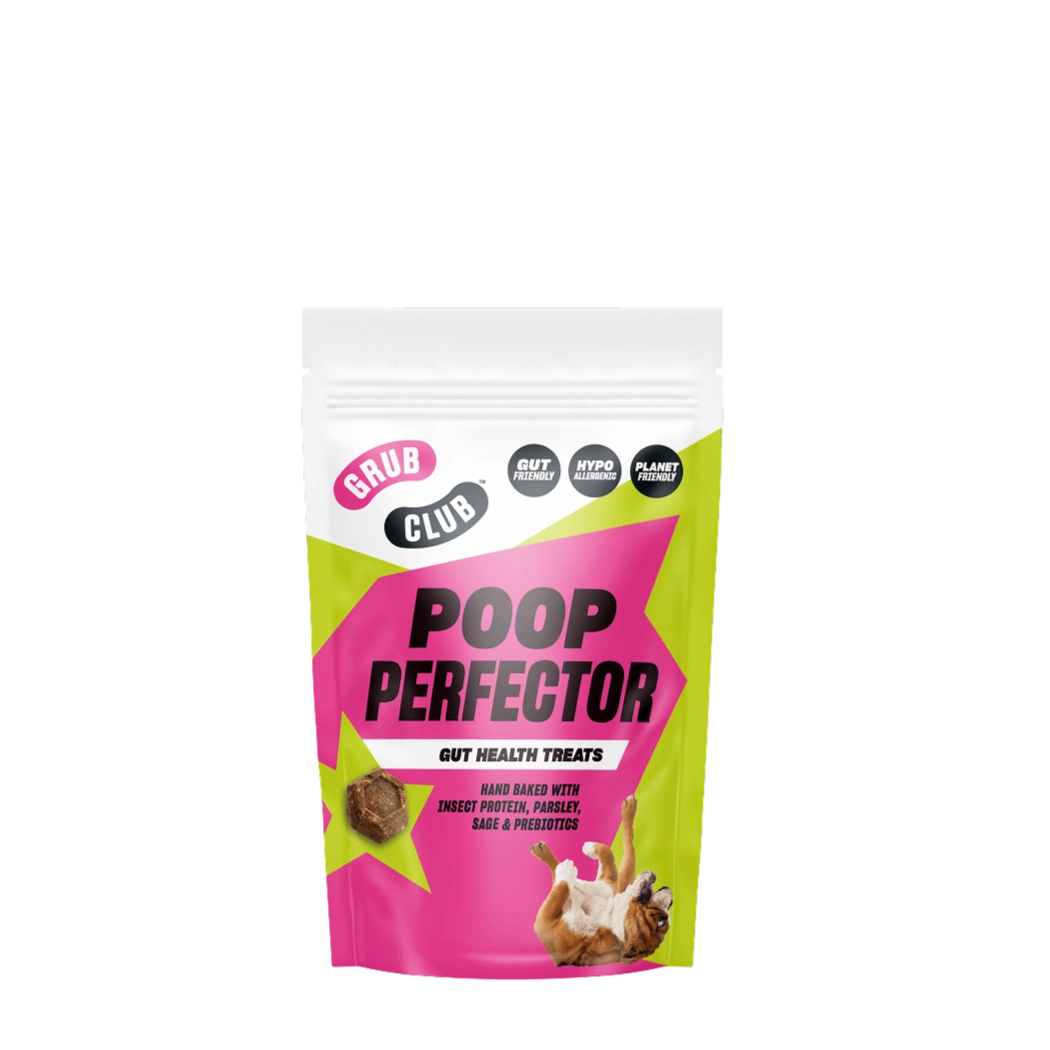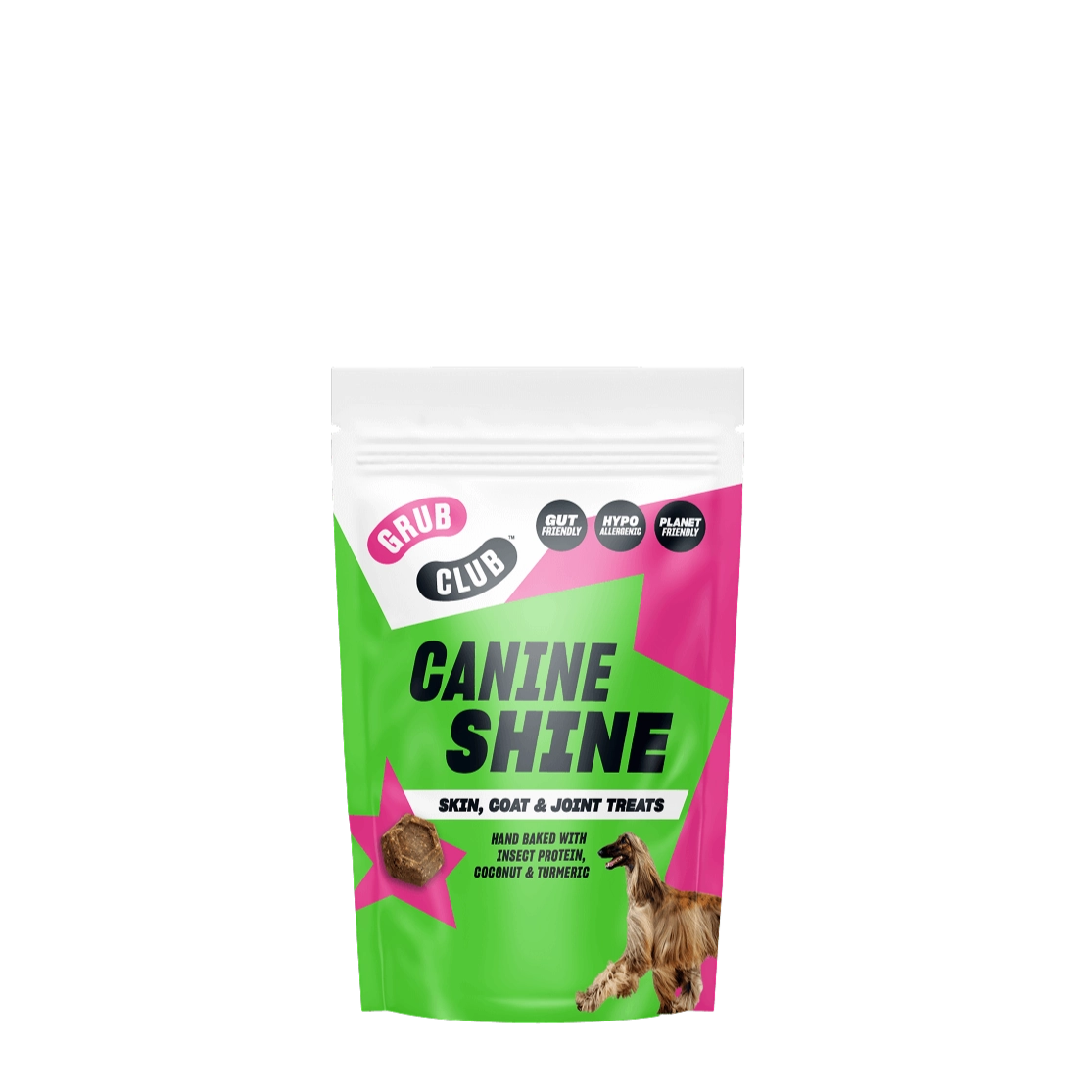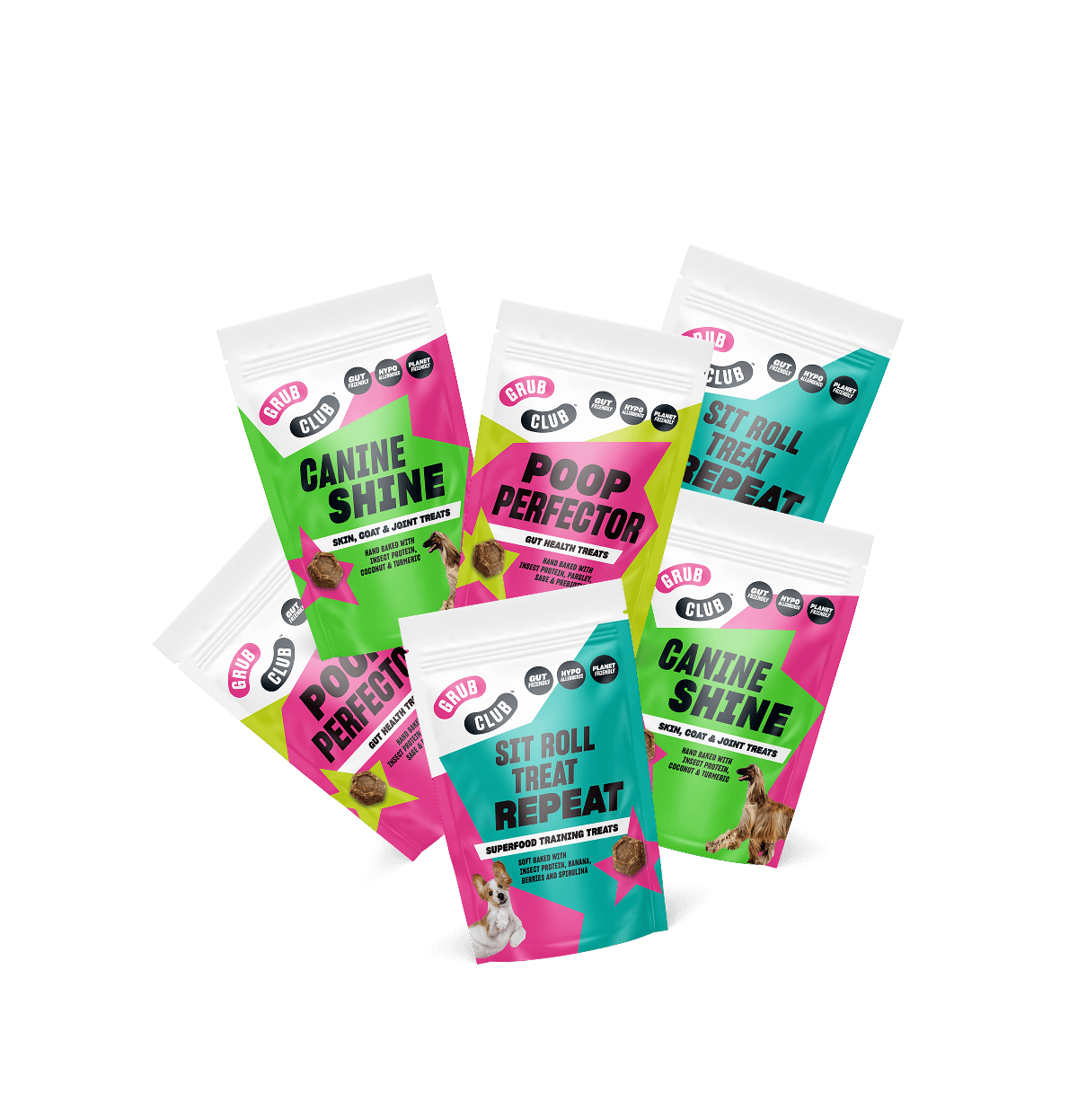Top Dog: All-In-One
Supplement for Snout-to-Tail Wellness
60 Scoops
FREE UK Delivery on orders above £49.
You have £0.00 in your cart, spend £49.00 more and get free shipping.
60 Scoops
1 Bar
72 Bags
1 Pack
1 Pack
1 Pack
Or continue without a name
CheckoutGetting your dog’s gut healthy and running as it should be is our top priority here at Grub Club. We know that there are far too many issues with digestion and poop within the canine world and we also know that there are some great solutions out there – it’s just a case of knowing where to look (starting with this article would be a good place!)
So, let’s take a closer look at the gut health of dogs and provide some ways in which you can help your own pooch feel a lot better…
The most common signs that your dog has an unhealthy gut are:
In contrast, a dog with a healthy digestive system will have firm and regular stools each day, you should be able to recognise the times of day that they will go and they will rarely be caught short. Your dog should be lean and full of energy, have a shiny coat and no signs of continuous scratching.
If you are witnessing any of the above symptoms we would always recommend seeking veterinary medical advice to rule out any illnesses prior to taking further steps.
The balance of gut health can be easily tipped by factors such as medicines, the wrong type of food, allergies, illness or incompatible dog food. A healthy gut is full of microorganisms that work together to keep the gut in tip-top shape, this is known as your gut’s microbiome.
Wiping out too many of one or not producing enough of another can quickly lead to poor gut health. The reasons for this will vary in each case but there are some really simple ways in which you can start to improve your dog’s gut health.
Probiotics are the healthy microbes that live inside your dog’s gut. They help to convert fibre and plant-based sugars into vitamins and fatty acids. You can often find probiotics within live yoghurts or in specific dog foods, alternatively, you could add supplements to their meal.
Prebiotics are the food source of probiotics. They work to suppress harmful microbes and help to support a healthy immune system. Without prebiotics, your dog cannot have a healthy gut and without a healthy gut, your dog cannot effectively absorb the proper nutrients from their food.
Probiotics and prebiotics work together to create a harmonious digestive tract. As with the above, you could provide your dog with supplements or choose a complete dog food that has incorporated prebiotics into their recipe.
We are beginning to see more and more dogs becoming intolerant to grains which results in poor digestive health. Grains can cause irritations to some dogs’ guts resulting in diarrhoea, gas and weight loss. Choosing a grain-free food is highly recommended when it comes to improving their overall health.
The clue really is in the name. Human food is for us and it should stay that way. We know it can be hard when those puppy dog eyes are lovingly looking up at you but our foods are full of things that can wreak havoc with your dog’s digestive system – processed meats, high sugar content, grains, preservatives – so keep these food items for yourself and instead have some high-quality dog treats handy to reward your dog with instead.
Choosing a dog food (kibble or wet) that is well-balanced and full of essential nutrients and minerals is one of the best ways in which you can help to improve your dog’s gut health.
We are so glad you asked! A complete dog food (just like ours!) that includes:
Your dog really doesn’t need to suffer, we promise there is a solution out there for them and once you crack the area that is causing the issue you will have a happy, healthy dog with a very balanced gut microbiome.

